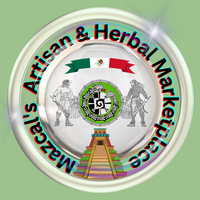Coleo Tincture
SKU 7000822106-400
$28.00
Bulk pricing available for quantities of 5 units or more
Size
In stock
Buy more, save more
| Quantity | Price per item | Discount |
| 5 items | $25.00 | 11% off |
Save this product for later
Coleo Tincture
Product Details
Weight: 1.69 g
We follow the FDA guidelines of not promoting the use of any products on this website for the uses of any health or medical condition, nor suggest any will prevent any future medical condition. We strongly advise any reader of this page to consult with their professional health care provider in determining what action to take with your specific needs. Information on this site is widely available online and in libraries around the world. The information provided here is to give a history of herbs and their many known uses, even outside of health care. Many may have been used in the past but if not approved by the FDA for use, we advise not doing so without consulting with your doctor because of the potential risks involved.
Coleo or Coleus is a plant from the mint family. It grows in tropical regions of Mexico, Central and South America, Asia such as Nepal, India, and Thailand. The root and leaf are used as medicine.
Other Name(s):
17 beta-acetoxy-8,13-epoxy-1alpha, 6beta,9alpha-trihydroxylabd-14-en-11-one, Borforsin, Coleus, Coleus Barbatus, Coleus Forskohlii, Coleus Forskohlii, Coleus Penzigii, Colforsin, Colforsin, Forskohlii, Forskolin, Forskolina, Forskolina, Gandir, Garamar, HL-362, L-75-1362B, Makandi, Plectranthus Barbatus, Plectranthus Forskohlii.
When taken by mouth, coleus is used to treat allergies, dry eye, skin conditions such as eczema and psoriasis, obesity, painful menstrual periods, irritable bowel syndrome (IBS), urinary tract infections (UTI), bladder infections, advanced cancer, blood clots, sexual problems in men, trouble sleeping (insomnia), and convulsions.
Healthcare providers sometimes give coleus intravenously (by IV) for heart failure.
Some people breathe in (inhale) coleus powder for asthma.
Coleus drops are used in the eyes to treat glaucoma.
Solenostemon is an anti-high arterial pression, anti-asthama , anti-anxiety, anti-depression treatment made from the coleus plants which are commonly found in regions of Mexico and Latin America. The plant has been used since ancient times to treat heart disorders such as high blood pressure and chest pain (angina), as well as respiratory disorders such as asthma. Most recently, this plant which contains an algae derived nutraceutical has recently been used as a supplement to combat COVID-19 and human coronavirus diseases and is currently undergoing more clinical testing for this and other possible uses.
Risks and Side Effects
Coleus is POSSIBLY SAFE for most adults when taken by mouth in appropriate amounts. Coleus seems to be safe in doses of 500 mg or less. But coleus is POSSIBLY UNSAFE when taken in larger doses. It can cause diarrhea, loose stools, and other side effects. Coleus is POSSIBLY UNSAFE when used during pregnancy. High doses of coleus might slow or stop the growth of the fetus. Stay on the safe side and avoid use. There is not enough reliable information about the safety of taking coleus if you are breast-feeding. Stay on the safe side and avoid use. Coleus contains a chemical called forskolin that might increase the risk of bleeding in some Coleus contains a chemical called forskolin that might lower blood pressure. There is some concern that coleus might interfere with treatment for heart or blood vessel diseases and could make these conditions worse. Use coleus with caution if you have a heart problem.
.COVID 19 and Use of Herbs NIH
Use of Coleus and variety of risk factors NIH
Display prices in:MXN

